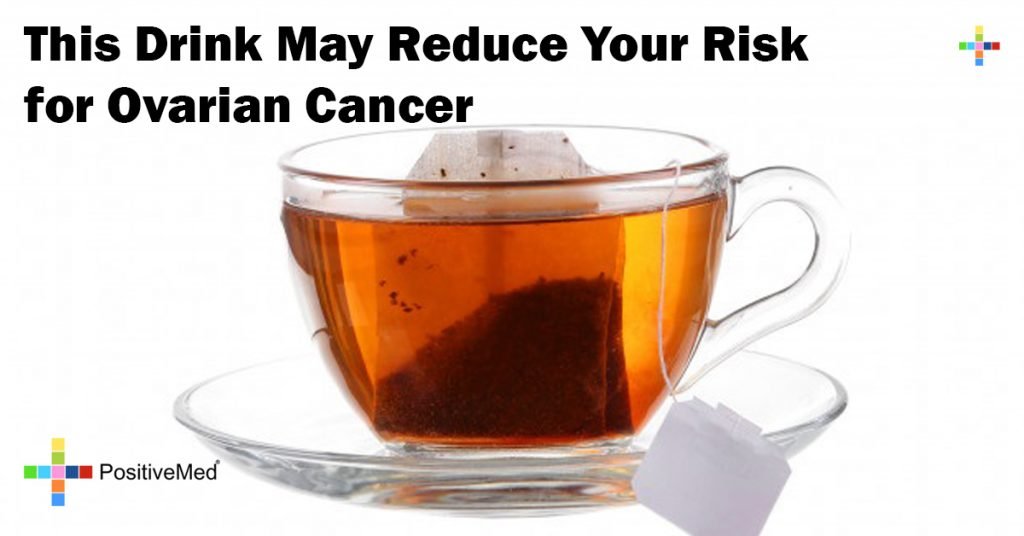
This Drink May Reduce Your Risk for Ovarian Cancer!
For all our female readers – did you know your drink choice can help reduce the risk of ovarian cancer? Yes, it’s true. A recent study published in the American Journal of Clinical Nutrition showed that women who consume the most flavonoids, an element present in tea, were less likely to be diagnosed with endothelial ovarian cancer. Ovarian cancer is the 5th leading cause of cancer death in women!

More than 170,000 women aged 25-55 were observed for dietary patterns for 30 years before reaching this conclusion. Just two cups of black tea each day was linked to a 31% reduction of risk for this deadly cancer. This was the first study to assess the 6 major flavonoid subclasses found in a normal diet and look into the terms of ovarian cancer with the impact of polymers and anthocyanins.
So what’s in flavonoids that help?
“The mechanisms aren’t completely understood, but a number of flavonoids are anti-inflammatory and have effects on cell signaling pathways,” says Aedin Cassidy, PhD, study author and professor of nutrition at the University of East Anglia’s Norwich Medical School. It seems likely flavonoids reduce proliferation of cancer and induce apoptosis that combat cancer cells.
To keep an accurate record of the women’s diet researchers programmed a validated food frequency questionnaire that was analyzed every 4th year, it was found that the main sources of flavonoids were black tea at 31%, onions at 20%, apples, and the main sources were citrus fruits. During the follow-up over 16-22 years the researchers found 723 women diagnosed with ovarian cancer.
The results clearly supported the intake of flavonoids. Those who consumed the most had lower risk of epithelial ovarian cancer than those who consumed the least.
Professor Cassidy affirms simple changes in dietary habits can bring a lot of improvement and could reduce risk of ovarian cancer. Cassidy also reported tea, citrus fruits, and juices to be the best sources of flavonoids.
To increase your intake of flavonoids:
• Fill your plate halfway with fruits and vegetables to reap the benefits and protective elements of flavonoids as they are only available only from plant sources.
• Swap soda for homemade iced tea.
• Choose 100% juice, it’s a quick and easy way to get the required amount of flavonoids.
• Enjoy carrot and celery sticks as quick snacks when you’re in hurry.
• Try to eat more dried and fresh fruits, dried fruit is high in sugar so go easy on volume.
• Love smoothies? Make them a source of flavonoids for breakfast or a snack.
• Enjoy small portions of dark chocolate as it’s a great source of flavonoids.
So ladies, sip some black tea to stay protected and fight deadly ovarian cancer whose survival rate is 44%. Other foods rich in flavonoids include grapes, blueberries, red wine, and onions.
The researchers stated additional studies are needed to support their results.





